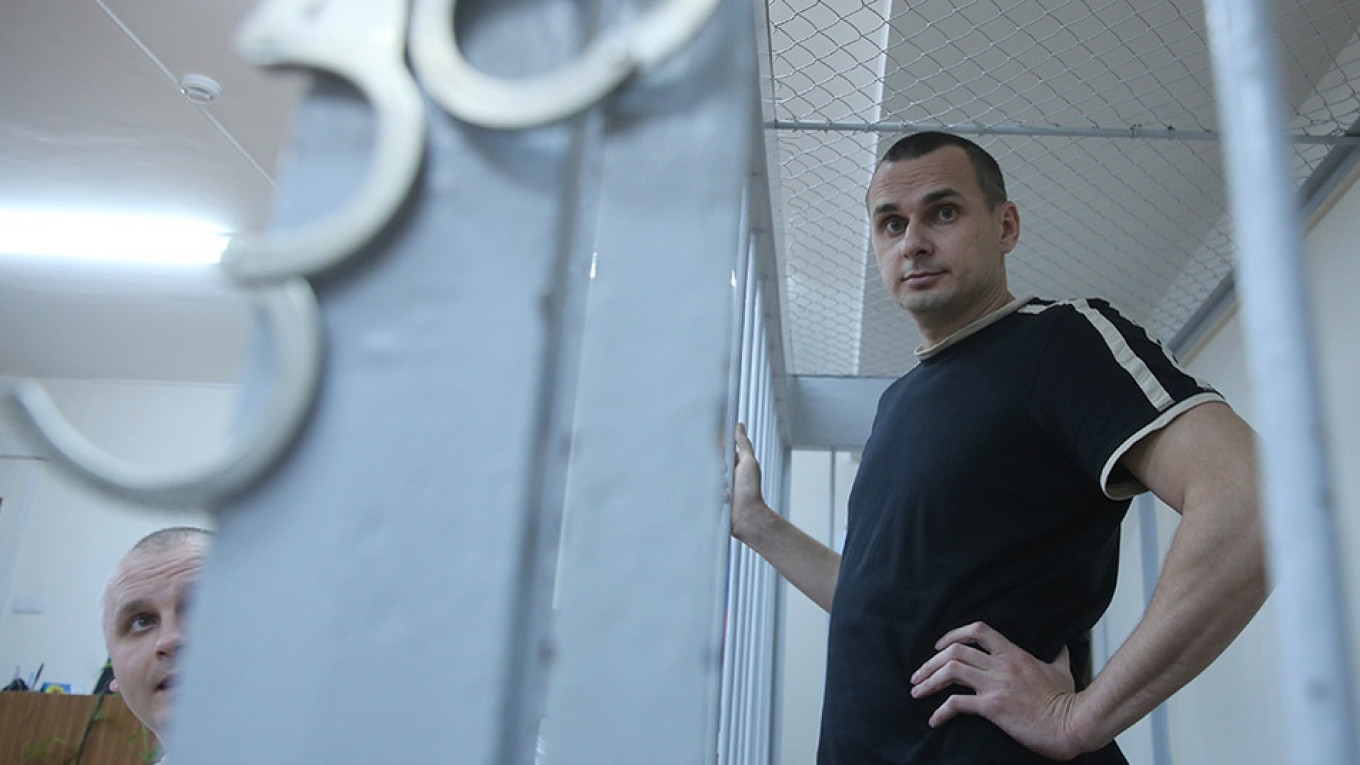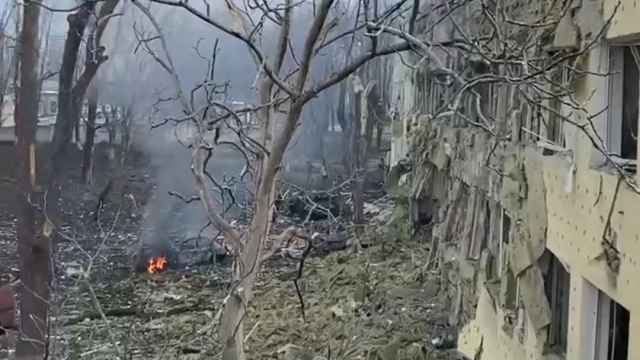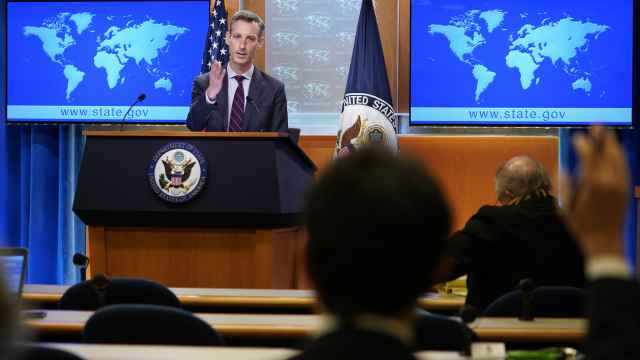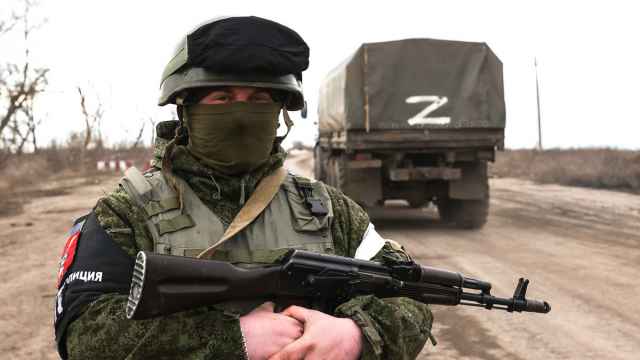Many of those who follow news from Russia have been counting down the days this summer with a sinking feeling. Now , autumn is here, bringing even closer the very real possibility that Oleg Sentsov, the Ukrainian filmmaker on hunger strike in a Russian prison since May, may die there.
Today is day 117 of Sentsov’s hunger strike. The condition of someone existing without food for that long is horrifying to imagine. 117 is also the number of days that Anatoly Marchenko, a Soviet dissident, spent on a hunger strike in 1986 to demand the release of all political prisoners in the Soviet Union. Marchenko was force-fed during most of his hunger strike through a tube in his stomach, an experience he described in his letters as pure torture. He died from heart failure a little under two weeks after he ended the hunger strike.
Many believe that Marchenko’s death was a decisive factor in pushing Mikhail Gorbachev to start releasing Soviet prisoners held on politically motivated charges.
Sentsov was sentenced by a Russian court to 20 years in prison in an unfair, politicized trial in 2015. An outspoken critic of Russia’s actions in Crimea, he was arrested on bogus terrorism charges in late spring of 2014, three months after Russian soldiers descended upon the peninsula. He is serving his sentence in a penal colony in Russia’s far north, above the Arctic circle. He is 42. He has two young children, who live in Crimea with his mother.
Sentsov started his hunger strike one month before the 2018 World Cup, hosted by Russia in June and July. He is calling on the Russian authorities to release over 60 Ukrainians held in Russia and Crimea on politically motivated charges. He is not asking for his own release.
At around the two-months mark of Sentsov’s hunger strike, he had his first health crisis. Since then, he has agreed to take an oral nutritional supplement, medically used to sustain people who are either unconscious or can’t swallow food. His lawyer said he agreed to take the supplement only under the threat of force-feeding. He takes a bare minimum to keep him alive.
Information about Sentsov’s condition is limited. On Aug. 11, officials from Russia’s federal penitentiary service reported it was “satisfactory.” Sentsov’s family and his lawyer call it “catastrophically bad.” Sentsov’s cousin wrote on Facebook that Oleg barely gets up. In a letter to her, he said that “the end is near” -- and he did not mean his release, she added. A Russian journalist and human rights defender who was allowed to visit Sentsov in detention two weeks ago said he appeared weak but in good spirits. Around the same time, Sentsov said to his lawyer: “I will last for however long I last.”
According to doctors who treat him in prison, his organs are about to start shutting down. Other medics who have not examined him suggest that as a result of a prolonged starvation, the immune system becomes so severely compromised that even the slightest infection can swiftly become fatal.
With the painful reality of Sentsov’s hunger strike so palpable, the enraging details of his prosecution fade. So it’s worth recalling them. The “terrorist organization” that Sentsov allegedly ran carried out two arson attacks in Crimea in April 2014 – one on the offices of the Russian Community in Crimea association, and another at the headquarters of the pro-Kremlin United Russia Party in Simferopol. No one was injured in either attack.
During Sentsov’s trial prosecutors provided no evidence of his personal involvement in the arson attacks, and the charges that he ran a terrorist organization were based solely on testimony from two other alleged members of the group. One later withdrew his testimony, saying that it was extracted under torture. In court, he described how Russian security service officials viciously beat him during interrogations, suffocated him with a gas mask, stripped him naked, and threatened him with rape to force him to testify against Sentsov. Nobody has investigated these allegations. Neither have Russian officials properly investigated Sentsov’s complaints about his cruel and degrading treatment in custody.
Since May, dozens of influential figures, from heads of states to world-renowned film directors, have called on the Kremlin to release Sentsov. Their statements have ranged from anger to personal pleas to President Putin to display Christian mercy. Human rights groups and activists from Russia, Ukraine and all over the world have been campaigning tirelessly for Sentsov’s release.
Whether the Russian authorities are concerned about international pressure or, on the contrary, more resolute than ever to show no weakness in the face of it, the result is the same: they continue Sentsov’s unjust and unfounded imprisonment and watch him slowly die in prison.
Is there anything that can be done? There has been a lot of talk about prisoner exchanges between Russia and Ukraine, and there is no reason that Sentsov could not be included in any such exchange, which both governments should actively pursue. One thing is certain—the Kremlin won’t act unless there is continuous attention, in Russia and beyond, to the shocking injustice of Oleg Sentsov’s case.
Yulia Gorbunova is a Russia researcher at Human Rights Watch. The views and opinions expressed in opinion pieces do not necessarily reflect the position of The Moscow Times.
A Message from The Moscow Times:
Dear readers,
We are facing unprecedented challenges. Russia's Prosecutor General's Office has designated The Moscow Times as an "undesirable" organization, criminalizing our work and putting our staff at risk of prosecution. This follows our earlier unjust labeling as a "foreign agent."
These actions are direct attempts to silence independent journalism in Russia. The authorities claim our work "discredits the decisions of the Russian leadership." We see things differently: we strive to provide accurate, unbiased reporting on Russia.
We, the journalists of The Moscow Times, refuse to be silenced. But to continue our work, we need your help.
Your support, no matter how small, makes a world of difference. If you can, please support us monthly starting from just $2. It's quick to set up, and every contribution makes a significant impact.
By supporting The Moscow Times, you're defending open, independent journalism in the face of repression. Thank you for standing with us.
Remind me later.








